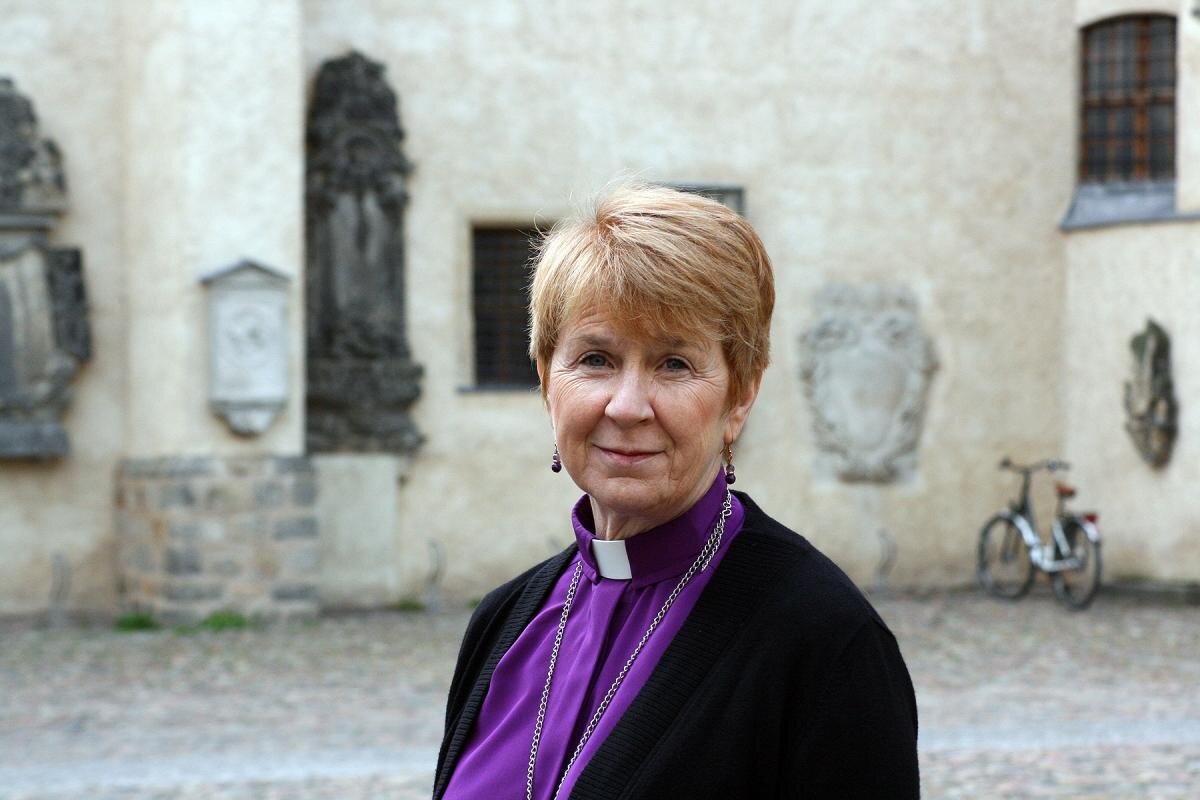Bishop Hutterer: Remembering Archbishop Óscar Romero
“I am the Lord, I have called you in righteousness,
I have taken you by the hand and kept you;
I have given you as a covenant to the people,
a light to the nations,
to open the eyes that are blind,
to bring out the prisoners from the dungeon,
from the prison those who sit in darkness.”
Romero in 1942 at the Vatican.
God uses us to bring change, often in ways we cannot understand.
We hear our call to work for peace and justice, but in a world of senseless actions and violence, it is hard to move forward and take action. It is difficult to remember that God is at work and play in all things. We are resurrection people, yet struggle to know that God brings life from death.
Archbishop Óscar Romero was assassinated, forty-one years ago, March 24, 1980. He is a saint to Catholics and Lutherans, and the unofficial patron saint of the Americas and El Salvador.
I became aware of Archbishop Romero while in Mexico City. I was a student at Luther Seminary at the time, and our class watched the movie Romero. His story continues to impact my view of the world and the church.
Romero was appointed Archbishop of San Salvador in 1977. The Church at the time was caught up in the Cold War politics and divisions. On one hand, the church contended with liberation theologians and clergy who operated with a “preferential option for the poor.” On the other, the church contained conservative clergy who supported sometimes oppressive governments for the sake of stability and opposing Communism.
The Roman Catholic church considered Romero a “safe” and moderate choice who would keep the status quo. Within a month of being Archbishop, a Jesuit priest, who worked with the poor, Rutilio Grande, was assassinated. Romero urged the Salvadoran leadership to investigate the crime. They did nothing.
The Sunday following the murder, Romero canceled all of the masses in the archdiocese, and celebrated one single mass in the cathedral. Over 150 clergy and 100,000 people are estimated to have attended and heard Romero call for an end to the violence.
Of his friend’s death, Romero said: "When I looked at Rutilio lying there dead I thought, 'If they have killed him for doing what he did, then I too have to walk the same path.'"
For the next three years, Romero was increasingly viewed as the “voice of the voiceless poor.” He broadcast weekly sermons on the church’s radio station, and used that time to list all of the disappearances, tortures, and murders that had taken place. These sermons were immensely popular in the countryside, and troubled those in power.
Romero’s sermons were the only source which named the reality of violence in El Salvador. He offered hope to listeners, and in doing so put his life at risk.
On March 24, 1980, Romero celebrated a memorial mass at a small hospital chapel. The day before, he begged the enlisted men of the Salvadoran Army, as Christians, to stop the killing. Near the end of his sermon, a single shot rang out, and Archbishop Romero fell dead beside the altar. No one was arrested for the crime. Most agree it was carried out by one of the government’s death squads.
Romero served almost three years as Archbishop. Romero spoke of “participation in a common life, the right and duty of all persons to participate in the construction of the common good.”
His work continues to inspire many to action, and reminds us the work in which we participate may be incomplete, but we trust God will bring it to completion.
God knows there is much work to be done in our world around power and privilege. As God’s beloved we all have a role to play. We must play it fully and faithfully, regardless of whether we can see the fruit of our labors or not.
There is a prayer attributed to Archbishop Romero, and interestingly no one ever heard him speak it. Regardless of its source, it encourages us to faithfully take the long view when we work for peace and justice.
“It helps, now and then, to step back and take the long view.
The Kingdom is not only beyond our efforts; it is even beyond our vision.
We accomplish in our lifetime only a fraction of the magnificent enterprise that is God’s work.
Nothing we do is complete, which is another way of saying that the kingdom always lies beyond us.
No statement says all that could be said. No prayer fully expresses our faith. No confession brings perfection. No pastoral visit brings wholeness. No program accomplishes the church’s mission. No set of goals and objectives includes everything.
This is what we are about.
We plant the seeds that one day will grow. We water the seeds already planted, knowing that they hold future promise. We lay foundations that will need further development. We provide yeast that produces effects far beyond our capabilities.
We cannot do everything and there is a sense of liberation in realizing that. This enables us to do something and to do it well. It may be incomplete, but it is a beginning, a step along the way, an opportunity for the Lord’s grace to enter and do the rest. We may never see the end results, but that is the difference between the master builder and the worker.
We are workers, not master builders; ministers, not messiahs.
We are prophets of a future not our own.”
The Rev. Deborah K. Hutterer
Bishop
Grand Canyon Synod of the ELCA



